BBC in hot water over ‘unashamedly homophobic’ guest on Stephen Nolan show
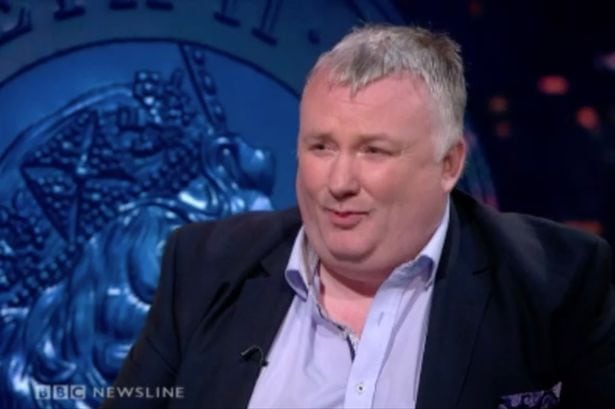
Stephen Nolan’s BBC show is in hot water after an anti-gay commentator remarked that the sight of two men holding hands “turned her stomach.”
Journalist Lynette Burrows, who appeared on the BBC Radio Ulster programme on Thursday, remarked that being gay “a chosen way of life which flies in the face of Christian morality”, reported the Belfast Telegraph.
The segment discussed same-sex dance partners Giovanni Ciacci and professional dancer Raimondo Todaro competing in the final of the Italian version of Strictly Come Dancing on BBC Radio Ulster.
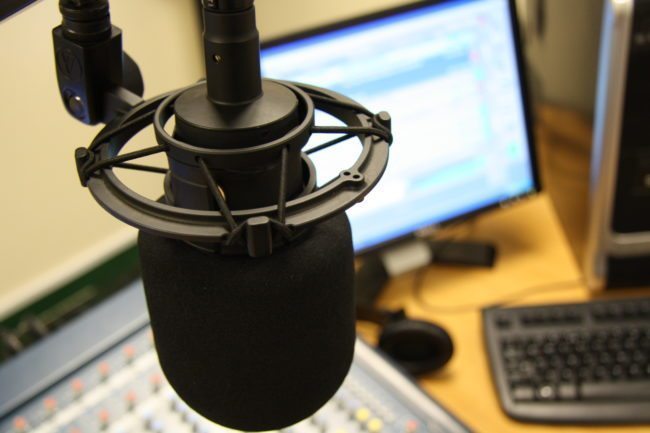
Burrows remarked that watching the programme would be a “revolting spectacle”.
Although Nolan was quick to rebuff her remarks, the Rainbow Project branded the segment “unacceptable” in modern society.
The Rainbow Project posted to Twitter that the show was “unashamedly homophobic.”
“The content of the discussion on BBC Nolan this morning has been unashamedly homophobic,” the post read.
“It is unacceptable to have straight people debate whether or not same-sex couples are revolting.
“Were these contributors paid by the licence fee for these comments? We will find out.”
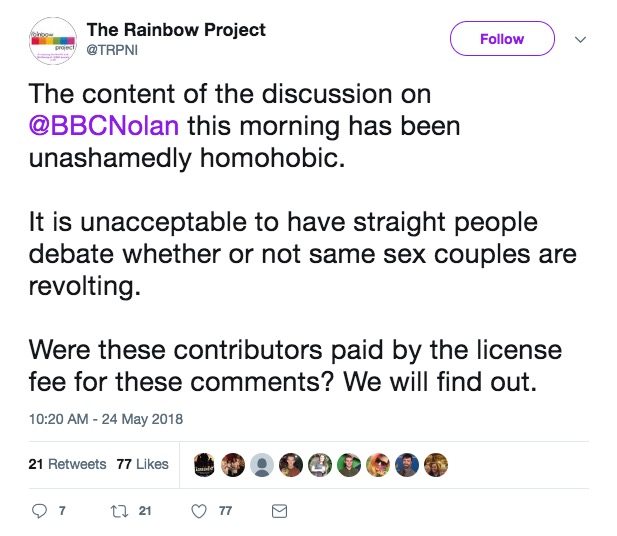
“The Nolan show gives listeners an important platform to discuss the big topics of the day,” said a BBC spokesperson to The Belfast Telegraph.
“Different and sometimes opposing views were heard on this morning’s programme as callers debated the inclusion of same sex couples taking part in a dancing competition.
“The presenter robustly challenged some of the contributions.”
Burrows has previously appeared on Victoria Derbyshire show.
On the BBC programme, she stated that putting a child with a same-sex couple was a “risk.”
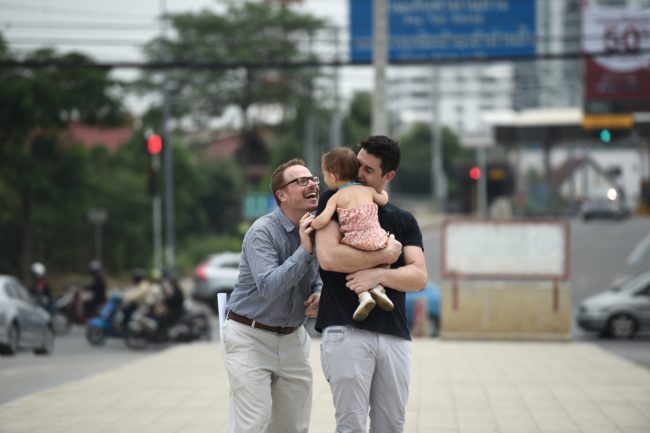
“You would not give a small girl to two men,” she said.
After she made the comments, she was investigated by police.
Northern Ireland is the only UK nation which has not legalised same-sex marriage.
A bill introduced by Labour MP Connor McGinn hopes to get same-sex marriage on the map in the country.
Although Northern Ireland’s political parties have been reluctant to legitimise the move through Westminster channels, it seems that the bill can’t pass through the Irish Assembly thanks to the reluctance of the Democratic Unionist Party.
The party, which are in a coalition government with Theresa May’s Conservative Party, are staunchly anti-LGBT rights.
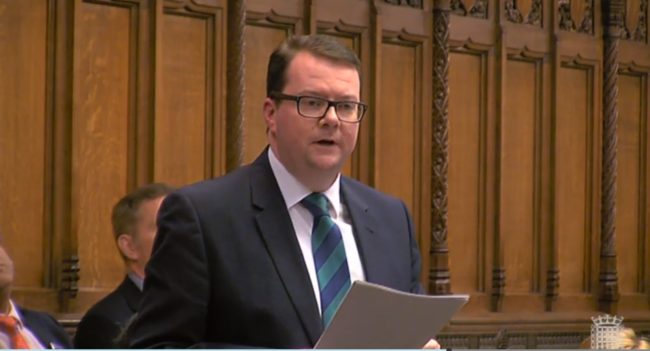
(SOURCE)
“If the Commons is in favour, as I expect it will be, the Government will have a moral and political duty to act and bring in legislation to end this discrimination once and for all,” McGinn wrote in an article for PinkNews.
“While I am confident we can secure a convincing majority in support of my bill in the Commons, the rights of LGBT people in Northern Ireland should not be delayed by a parliamentary process that can knock backbench bills like mine off course.”

